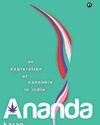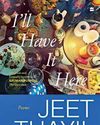The President of India looks back to look ahead at the challenges that can disrupt a democracy’s dialogues.

My first exposure to politics was at home. My father, the late Kamada Kinkar Mukherjee, joined the Indian National Congress in response to the call of Mahatma Gandhi in 1920. A staunch nationalist, he was arrested several times by the British government during the freedom struggle. After Independence, he served as a member of the West Bengal Legislative Council for two terms.
I have many childhood memories of local Congress leaders visiting our modest house. Quite often, when the discussions extended through the day, my mother would prepare a frugal meal for them. It is hence not surprising that when I entered college, the study of politics and modern Indian history captivated me. I became involved with student politics. Through all of this, and till date, Jawaharlal Nehru was a dominant influence on me.
A Nehruvian Indian
Nehru was a politician, statesman, institution-builder and a nationalist committed to the plurality that makes India exceptional. In his thinking, only a democratic structure, which gave space to various cultural, political and socio - economic voices, could hold India together. Nehru also strongly discouraged all forms of hero worship. As early as November 1937, he had penned an article titled ‘Rashtrapati’ under a pseudonym, Chanakya, in the Modern Review of Calcutta, edited by Ramananda Chattopadhyay, accusing himself of having all the makings of a dictator, and concluded: “We want no Caesars.”
Of Human Bondage
この記事は Reader's Digest India の May 2017 版に掲載されています。
7 日間の Magzter GOLD 無料トライアルを開始して、何千もの厳選されたプレミアム ストーリー、9,000 以上の雑誌や新聞にアクセスしてください。
すでに購読者です ? サインイン
この記事は Reader's Digest India の May 2017 版に掲載されています。
7 日間の Magzter GOLD 無料トライアルを開始して、何千もの厳選されたプレミアム ストーリー、9,000 以上の雑誌や新聞にアクセスしてください。
すでに購読者です? サインイン

ME & MY SHELF
Siddharth Kapila is a lawyer turned writer whose writing has focussed on issues surrounding Hinduism. His debut book, Tripping Down the Ganga: A Son's Exploration of Faith (Speaking Tiger) traces his seven-year-long journey along India's holiest river and his explorations into the nature of faith among believers and skeptics alike.

EMBEDDED FROM NPR
For all its flaws and shortcomings, some of which have come under the spotlight in recent years, NPR makes some of the best hardcore journalistic podcasts ever.

ANURAG MINUS VERMA PODCAST
Interview podcasts live and die not just on the strengths of the interviewer but also the range of participating guests.

WE'RE NOT KIDDING WITH MEHDI & FRIENDS
Since his exit from MSNBC, star anchor and journalist Mehdi Hasan has gone on to found Zeteo, an all-new media startup focussing on both news and analysis.

Ananda: An Exploration of Cannabis in India by Karan Madhok (Aleph)
Karan Madhok's Ananda is a lively, three-dimensional exploration of India's past and present relationship with cannabis.

I'll Have it Here: Poems by Jeet Thayil, (Fourth Estate)
For over three decades now, Jeet Thayil has been one of India's pre-eminent Englishlanguage poets.

Orbital by Samantha Harvey (Penguin Random House India)
Samantha Harvey became the latest winner of the Booker Prize last month for Orbital, a short, sharp shock of a novel about a group of astronauts aboard the International Space Station for a long-term mission.

She Defied All the Odds
When doctors told the McCoombes that spina bifida would severely limit their daughter's life, they refused to listen. So did the little girl

DO YOU DARE?
Two Danish businesswomen want us to start eating insects. It's good for the environment, but can consumers get over the yuck factor?

Searching for Santa Claus
Santa lives at the North Pole, right? Don't say that to the people of Rovaniemi in northern Finland